- From Faith Current: “The Sacred Ordinary: St. Peter’s Church Hall” - May 1, 2023
- A brief (?) hiatus - April 22, 2023
- Something Happened - March 6, 2023
Am I excited for Ron Howard’s upcoming documentary, Eight Days A Week? Hell yes, I am. The story of the Beatles’ touring years is the great untold portion of their career, and it deserves more attention. In part because the touring experience was what made them who they were; in part because we think we know what it was like; and in part because no one but them could ever truly know what it was like.
In my generation, Touring Beatles (1962-66) were often dismissed as pop lightweights turned into artists by exposure to drugs and Bob Dylan. And that viewpoint has become even more common (go Google “Beatles” and “boy-band”), but it’s simply wrong. Whatever the Beatles were in 1968 was clearly present by 1965, just expressing in a different way. And it was their war-like touring experience that gave them the strength to flower in the post-touring period.
Do I think we’ll get The Whole Tale? Of course not — even if Paul and Ringo still remember it (and they don’t), they aren’t interested in a warts-and-all story. But whatever else Eight Days A Week will be, it will change touring from being primarily an expression of the Beatles as a commercial entity, into its true nature as the forcing-house of the Beatles’ unparalleled creativity and cohesion.

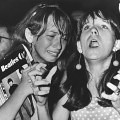
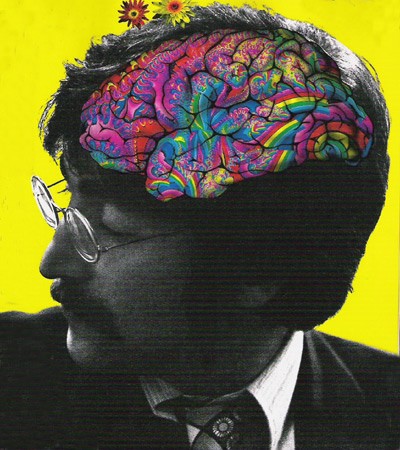
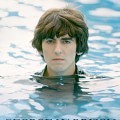
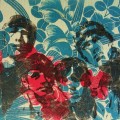
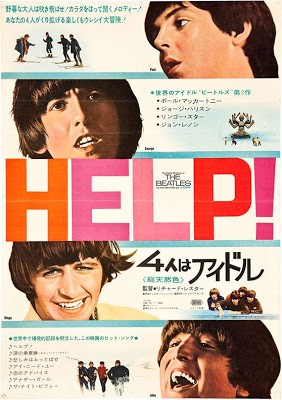
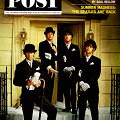
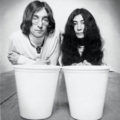
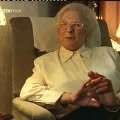
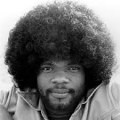
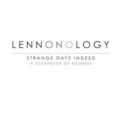
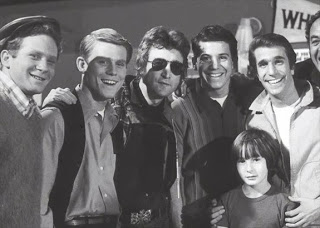
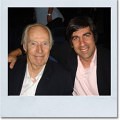
I’m also really looking forward to this! I can’t help but wonder what might have been if touring for the Beatles had been more flexible and more logistically manageable, in terms of crowd control and amplification. As for the Beatles = boy band thing, I just can’t engage with that kind of deliberate reductionism.
The promise of the touring years does not speak to me.
Having read ‘Love me Do’ by Braun as one of my first books on The Beatles, in the late sixties and early seventies and since a few years all those informative books on the concerts in bland and boring American cities, and that includes Gundersen’s great book ‘Some Fun Tonight’, I wonder whether there is much new to report on the proces of touring.
What appeals to me is the touring in relation to the musical development, read creativity, within and without The Beatles. There is actually not much available on that subject. Live, the BBC radio – music offers so much, bless them when they manage to come even close to that level of musical-quality and uniqueness, I don’t even dare to hope so.
The current trend of letting fans do the talking, like in some of Macca’s concert video’s and Springsteen’s honey drooling ‘Springsteen and Me’ or was it I(?), doesn’t make sense to me neither, Candy Leonard’s ‘Beatleness’ does a much better job there. It would be disastrous if Howard is pushed in that direction, or does the world need more American smug – as if the appreciation by American fans and the commercial breakthrough in America was pivotal for The Beatles influence of the world.
As I understand the info it is not only about the touring, but it is supposedly to give an idea about how their music evolved – live concerts is part of that, but not only. Let’s hope Ron Howard is the decent Steve Bolander he once portrayed and had access to very early Beatles film and audio material that is presented in a more attractive way than the now boring Anthology-ways. It would be a great addition to the ‘1’ Blu-ray set.
.
I will await with nervous anticipation – and as on 09-09-09 I will be around and available checking out when this stuff comes.
If there’s any way I can see it on a big screen (if it shows at a theater near me) I really want to see it. I won’t be expecting any deep analysis or discussion of what they accomplished, I just want to experience the music and performances in a primal level.
Interesting comment about the Beatles in bland and boring American cities. I actually find that more interesting because of the extreme contrast. Sort of like when the Marx brothers films were being written: “Let’s put them in an opera house! Or an upper-class ocean liner! Or in a court of law!” It’s fascinating to see the Beatles in the American south, or the midwest, with all the girls looking like “1940s horses” (John’s words) and the boys with their crew cuts and suspicious eyes.
I recently saw a clip of Buddy Holly’s “American Invasion” of the U.K. (sales of electric guitars went up wherever he appeared). In the brief footage that remains, I can see the Beatle parallels; the edwardian three-button suits, the low bows after each performance. I still believe Brian put them in suits and told them to bow after seeing Holly’s template:
https://www.youtube.com/watch?v=thDg5Mxp-PE
https://www.youtube.com/watch?v=EDPfExGg2EU
I’m hoping it isn’t just old film clips of screaming girls and poor audio;
I’d like to see the before hand press conferences, and any back stage footage.
I’ll especially be looking for any Crosley Field footage, considering there are numerous photo’s all over the internet.
Blimey. How on earth has Mark Lewisohn found the time to write two books at once?
“A hard day’s night: a private archive”, out in September
http://uk.phaidon.com/store/performing-arts-music/the-beatles-a-hard-days-night-9780714871851/
Blimey, Hunter Davies has a brand new one out too. Can’t find many details about it but it’s apparently a new “ultimate Beatles book”. It’s called “The Beatles Book”
It’s written with Spencer Leigh, Keith Badman and David Bedford. I recognise the names – are they considered trustworthy names in Beatles scholarship?
Lewisohn has spoiled me, and I tend to look for his name first.
We could be in for some treats this year, on top of our Ruth’s excellent book “The Beatles and The Historians”. If I could work out how to review a book I’d submit one on that particular book to HD.
I’m very glad to hear you enjoyed the book, evilpants. I’d be pleased to hear your thoughts on it; if you have any questions or comments about it you’d like to discuss, I have a small blog at wordpress here: https://beatlebioreview.wordpress.com/
I’m not very well versed on Spencer Leigh or David Bedford. I did read Keith Badman’s books, and while I think his reputation is pretty trustworthy, his lack of citations in books like “The Beatles After the Breakup” drives the professional historian in me crazy.
In addition to Davies book, there was an article not too long ago in The Huffington Post which said at the bottom that Kenneth Womack is writing a biography of George Martin out next year. http://www.huffingtonpost.com/entry/50-years-of-beatles-the-fab-four-and-the-concept-of_us_578b7c51e4b0b107a2414021
That could be very interesting, particularly if Womack interviewed Judy Martin.
Hi Erin. I’m actually attempting to write my first ever book review, and if the people here are up for it, I’ll submit it as a guest post.
I’m trying to learn what’s expected from a book review, but I really did think your book was excellent and I’d like to tell people that. I’m not sure I’ve got much worth saying about it, but I’d still like to try.
And you’ve given me yet another thoughtful website to visit (yours). Thanks 🙂
I didn’t really like that Womack article – it felt like he took a load of stuff from Tune In and tried to fit it into someone else’s theory about genius, and it seemed pointless to me (although that’s the problem with Lewisohn’s impact – everything about the Beatles is now in Lewisohn’s books and so it’s difficult to get away from the accusation that all you’ve done is copy/pasted).
There was no original work in there – and maybe rightly so, given the still-shocking attitude Huffington Post has to actually paying people from the large amount of cash it draws in. I hope his George Martin bio contains original research. It could be fantastic, as you say, to read a story based upon real research including talking to Judy Martin.
I was saddened to see Mark Lewisohn say that a few years back George Martin cleared out his stuff – he actually threw away his paperwork (http://www.youtube.com/watch?v=sQRfhngrNlk&t=4m2s refers). Literally threw them in the bin. Unless Mark got it really wrong and Martin secretly handed it all over to researchers, that’s a huge loss to history.
But see there’s the problem with a lack of historical distance. I watched him on the TV recently and he’s so fantastic, so of course I forgive him for throwing it all away.
History might not do so.
Please submit your review as a guest post, evilpants! Sounds very interesting.
evilpants,
I’m flattered that you are going to write your first ever book review on “The Beatles and the Historians,” and I’m looking forward to your review and post. If you have any questions you’d like to ask me before you do the review, feel free to e-mail or message me.
Honestly, I didn’t really like the Womack article that much either; I was more excited by the news of a biography of George Martin. His story is also a fascinating one, and while I do believe Lewisohn is demonstrating excellent attention to Martin in “Tune In,” I’ll be curious to see what, if any new research/interpretations Womack comes up with.
Unfortunately, I’m about to leave on a trip and don’t have time to watch that video you posted about Martin throwing his paperwork away, but if Martin did pitch it just a few years ago, that’s disappointing and somewhat surprising. Martin has always come across, to me, as someone who was very conscious, certainly by the time of the Beatles breakup, that what he had done with the Beatles was the equivalent of catching lightening in a bottle. That he would consciously throw away material whose value he was uncertain of is a bit of a shock. Although its not uncommon; Harry Truman’s wife did the same thing after his Presidency, burning all their personal letters to each other simply so history wouldn’t have them.
Thanks Ruth. Because of the way your book made me think so hard about how other history is written, it’s done me a great service. I’m trying to write a review that does it justice – it is hard cos I don’t know what’s expected 🙂
I do think your book should be seen as a “how to read history books” teaching tool, as well as a great work about the Beatles in its own right. It’s really done that for me.
On the video: it is part of a long interview with Lewisohn which I think all fans would really enjoy watching.
I spent a couple of minutes transcribing the relevant part of the interview, hopefully you’ll have time to read before you go away.
At 1:55 interviewer tells story of a man (it’s an Irish name and I won’t insult him by attempting to spell it) “visiting George’s house and… there were actually no archival notes anywhere” apart from one notebook. They then go on to discuss George’s feelings about EMI in 1961/2 after which, at 4:04, Lewisohn says
“George did have a purge of all his paperwork a few years ago. I did get to see some of it but undoubtedly there was more that I didn’t see, and now no one will see it and I just think that’s a great shame. I can understand from the family’s point of view how certain things must be private. When people become very public, there is a natural and understandable tendency to hang on to certain things and not let the public have everything, because you’ve got to have your own privacy as well… by throwing away his diaries, the world’s greatest ever record producer, throwing away his daily diary – who he’s worked with, when the sessions began, when they finished, that I think actually belongs in a national museum or library, but, y’know, you have to respect the decision they made”.
Interviewer: “Well why do you think they did that?”
Lewisohn: “[long pause] I don’t know. I did go through George’s 1967 diary about 25 years ago. [George, Judy, their secretary Shirley and I] went through the ’67 diary, and as you turn the page so the memories come flooding out, and I recorded that. So I have that – but it’s only that. It’s not ’66 or ’65 or ’64 or even indeed into the ’70s and ’80s. It really is a shame that we are denied that, but it was their personal property and you have to respect that.
“We could cry over what we don’t have, or we could celebrate what we do.”
Just wanted to add that Dickens had a huge bonfire of many of his personal papers before he died. It would be interesting to know how often public figures do a big purge of this kind.
Sean sings “Tomorrow Never Knows” in Orlando
https://www.youtube.com/watch?v=yMXC9M-nMxE
The ‘reply’ button has vanished again.
Tony (a.k.a. the poster formerly known as ‘evilpants,’ which might have been a silly name but was also memorable): I don’t want to hijack this thread away from its original purpose any further, but I do have to tell you how immensely pleased I am to hear you say that you regard “The Beatles and the Historians” as a “teaching tool,” because that is its fundamental purpose. I had an historian but non-Beatles fan reader and friend who was particularly frustrated with the whole “Eleanor Rigby” discussion in Chapter Two, because he argued that ‘who wrote what’ didn’t matter and didn’t have historical significance. I managed to convert him by arguing that, even if you don’t care about that particular issue, it serves as a valuable case-study, which students could use as an example to determine the most credible source regarding other, what he regarded as more worthy, topics.
Thanks so much for the video and transcript. I appreciate Lewisohn’s discretion and diplomacy when discussing the issue, and the whole issue of what history is entitled to, as opposed to what privacy public figures are allowed to have, is a very complicated one. “When people become very public, there is a natural and understandable tendency to hang on to certain things and not let the public have everything, because you’ve got to have your own privacy as well…” That’s the problem with writing history about living figures particularly, as Lewisohn has made clear, figures like George Martin, whom Lewisohn liked and was friends with.
And Nancy, I believe purges of that sort among historical figures are quite common. Both because they want to direct the arc of the depiction in history, and because they want to retain some of their privacy. Was there anything explosive in George Martin’s daily diaries? We’ll never know. Incidentally, in the quasi-incoherent “John Lennon Called Me Normal” Norman Smith memoir I read, Smith implicitly and repeatedly accuses Martin of writing and directing Beatles history in order to suit his own reputation, implying that Martin did so, in part, by minimizing Smith. It’s the most interesting aspect of a frankly bizarre, rambling book. Along with Emerick’s memoir, it provides the most negative depiction of Martin (with the exception of “Lennon Remembers”) I’ve ever read.
Trying to nudge this thread back on topic: I agree with Michael that I don’t expect a “warts and all” documentary; my expectations are not very high regarding revelations. And I’m hardly the first person to argue that I think touring gave them a cohesion and structure that the studio, by itself, did not; I think it was Derek Taylor who made the comparison that being on tour was like being in the foxhole together. If Howard discusses that element — and it looks like he will, to an extent — that could be interesting.
Hi Ruth – I haven’t forgotten about my review; actually it’s mostly written. It’s a combination of work and health that’s slowing me down. I’ve found it really hard to write a review, because I’ve got so much I want to say but I’m not sure whether I’m saying too much and being boring.
I’m at 3,000 words. I think I should cut some out 🙂
In terms of the documentary, I’m undecided whether I’ll go and see it or wait for it to be released for home viewing. I’ve never been a fan of going to see factual films at the cinema. I go for spectacle or to be immersed in a totally different world. But… this film could do that – my worry is that it’ll just be a much more modern “Anthology” type of thing.
I wouldn’t want “warts and all” – I want the excitement, the madness, the absolute joy the people in the audience felt, the wonder that the Beatles felt as they became more and more popular.
I don’t need to be told whether the stories about the Beatles literally whipping girls in their hotel room in Australia are true, for example – but I do want to get a glimpse into just how crazy the hotel rooms were. I want to be there, I guess.
I’m glad you found the book interesting enough to find 3000 words to use writing about it, evilpants. 😉 I hope your review prompts some good discussion, too.
I look forward to seeing it whenever you are finished. Waiting is part of the game; I have an awesome review waiting in the pipeline for a Routledge journal — the reviewer, a historian, sent me an advance copy — but the review won’t be published until Spring 2017, because that’s how academic journals roll. And with that, my hijacking of this thread is complete. Back on topic:
“my worry is that it’ll just be a much more modern “Anthology” type of thing.”
That in and of itself could be interesting; contrasting this documentary with “Anthology” or previous, other documentaries, like “The Compleat Beatles.” Personally, I had low expectations regarding the video version of “Anthology,’ because I knew I was only going to get the officially approved version of history. I preferred the book version, but I’m a bibliophile at heart.
I just saw this about the “Jesus controversy” and the Beatles in the deep south:
https://theconversation.com/are-the-beatles-still-more-misunderstood-than-jesus-62751
I think you might be more than interested in a series of ‘in-depth’ pieces which Maureen Cleave is doing on each Beatle for the London Evening Standard. I’m enclosing a clipping showing her piece on John Lennon; I think the style and content is very much in line with the sort of thing DATEBOOK likes to use.
(letter to the magazine editors from Tony Barrow)
Nancy and Tony, here’s an article you might find interesting, regarding our previous discussion of destroying/hiding documents in order to manipulate history. (Full disclosure: It’s long and non-Beatles related):
https://www.theguardian.com/news/2016/aug/18/uncovering-truth-british-empire-caroline-elkins-mau-mau
—
Hologram, thanks for that article — it was really interesting, and adds an entirely new perspective on Datebook’s motivations for publishing the Beatles Maureen Cleave interviews.
—-
Given the context of the time, that Paul’s inflammatory statements regarding American race relations were so thoroughly overlooked in favor of John’s “bigger than Jesus” comments, when Art Unger expected (and hoped?) that Paul’s in particular would provoke something — whether awareness, discussion, or increased sales — is puzzling. Americans have a long history of resenting British and/or Europeans lecturing then about their race relations — the British government put out a booklet in WWII instructing British soldiers not to discuss “the Negro problem” with American G.I.’s — and many Southerners, in particular, resented non-Southerners criticizing segregationist practices: Norman Rockwell took a lot of Southern backlash for his most famous anti-segregationist works: he was from Vermont, so what right did he have to lecture to the people of Mississippi or Alabama? But Paul’s comments seemed to fly under the radar, even though Unger put his face on the front page. Odd.
https://www.youtube.com/watch?v=oBZ6SuFODYg
Well, I snuck out for a noonday matinee showing of Eight Days A Week and I enjoyed the experience. I literally have not seen the Beatles on a big screen in a movie theater in 51 years (I saw Help! in 1965 at our local cinema at the age of seven) and loved the big, cleaned-up sound and restored footage.
.
Usually I’m annoyed by contemporary talking heads, but everyone interviewed (Whoopi Goldberg, Eddie Izzard, Elvis Costello, Mr. Kane) had valuable things to say. While watching the footage I sort of felt myself reaching back into time to shake hands with my childhood self: “It’s the future! 2016! And I’m seeing this great Beatles movie. Trust me! You’ll love it!”
.
Because it was a weekday matinee, the only other people in the audience were three ladies who appeared to be in their late ’60s/early ’70s. They talked excitedly through the whole thing, but I enjoyed their comments. They chuckled at John’s wit, giggled whenever Paul spoke. The soundtrack volume was loud enough so that they were simply quiet murmurings. When the documentary ended, they all got up to leave. I turned around and told them “The Shea Stadium concert is coming up next” which surprised them. They sat back down and sang along with all the songs. At the end of the film, the leader of the group (the granny equivalent of John) thanked me for letting them know about the bonus footage.
.
I confess I felt myself choking up a few times during the movie, and actually had a tear in my eye more than once. But then again, I’m sentimental that way.
.
I remember when I was a child and I used to think to myself “I wish I was a Beatle. Then my life wouldn’t be so hard.” Seeing this documentary reminded me it was NOT easy being a Beatle. Exhausting, dispiriting, physically dangerous… and yet they held their heads high.
.
I like how it ended with the beautiful rooftop footage, I simply enjoyed the whole thing.
.
If any of you have the opportunity to see it in a theater (rather than Hulu or a laptop or whatever) I recommend it.